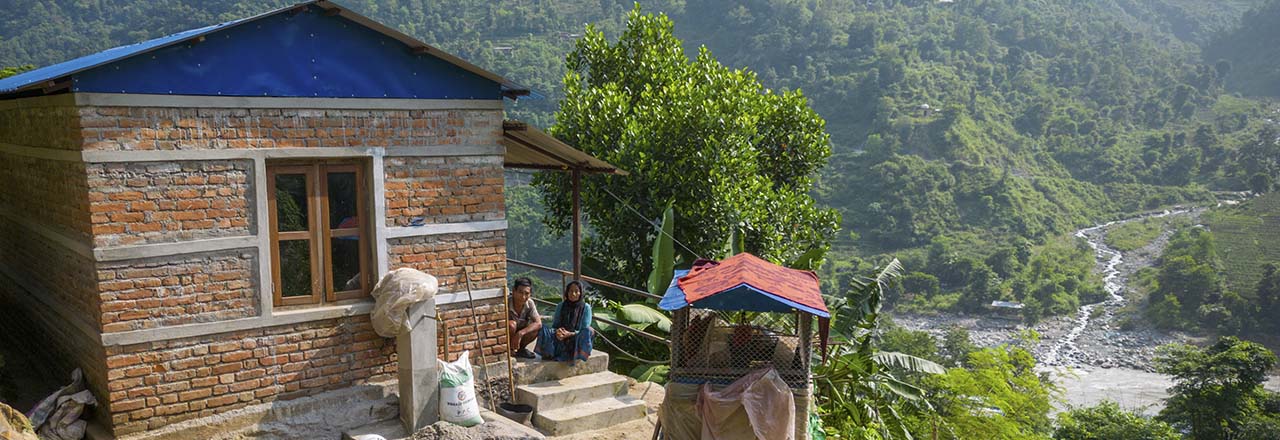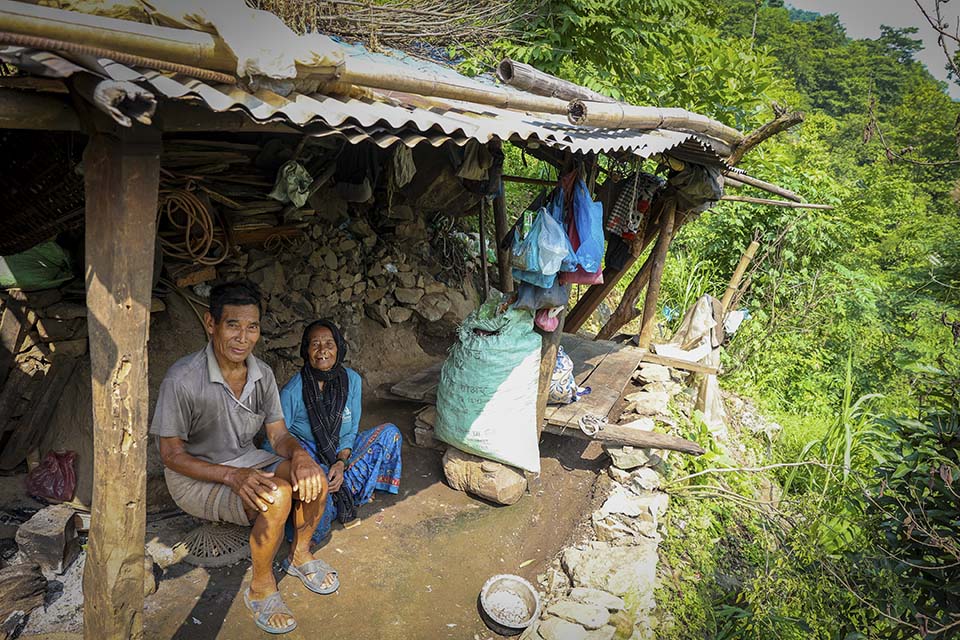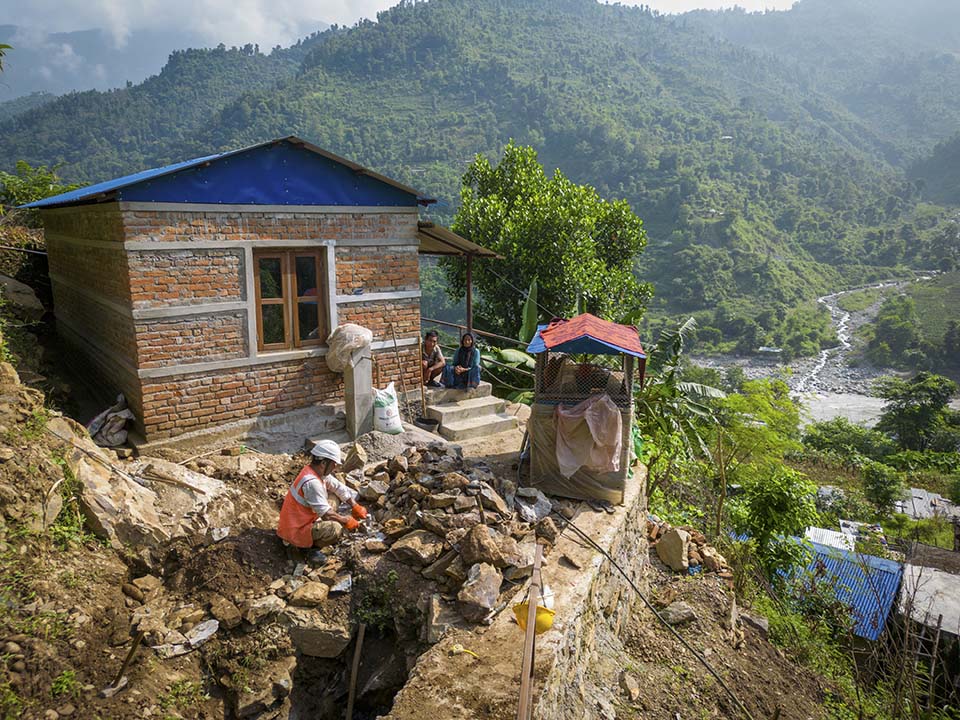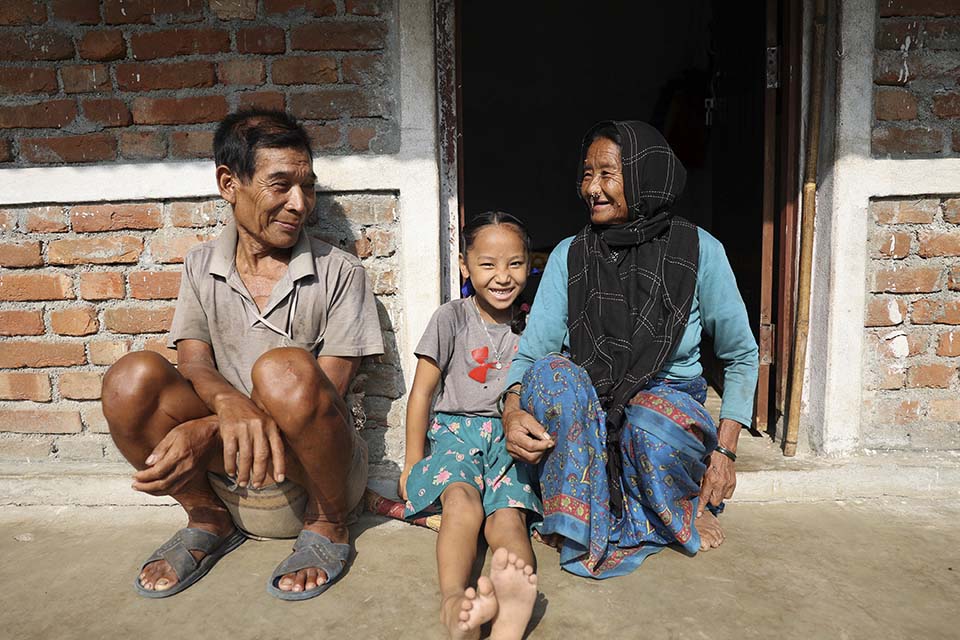

Rebuilding Lives and Livelihoods in Nepal
KunMaya Chepang smiles like any other proud grandmother would, sitting next to her granddaughter and admiring the view from her recently constructed home in Ichchhakamana, Nepal. Her story is one of resilience, of rebuilding life from the rubble left behind by the devastating magnitude 8 earthquake of 2015.
“Before the earthquake, we were staying down there. That's where I lost my son,” she says, indicating the place where her son was killed in the quake. “And then, after the earthquake happened, we moved up here,” KunMaya says. "The biggest loss, you know, was my son," she says softly.

Following the 2015 earthquake, KunMaya and her husband, Khadak Bahadur, had been residing in a temporary shelter until CRS helped them build a permanent home.
Photo by Nripendra Khatri/CRS
For more than eight years afterward, KunMaya and her husband lived in a small wooden hut that offered little protection from the elements. A lifeline came when Catholic Relief Services and our local partners in Nepal identified KunMaya’s family as eligible to receive a new, fully reconstructed home.
Through the Resilient Communities through Vulnerable Earthquake Recovery project, or ReCoVER, CRS and our partners have been supporting approximately 6,240 families affected by the 2015 earthquake.
“When the masons were building my house, I was very happy. I provided them with water and snacks during their breaks. I feel like this is part of a humanity thing. When somebody is helping you, you need to treat them with kindness,” says KunMaya.

CRS-trained masons are constructing an earthquake resilient home for project participants KunMaya and her husband, Khadak Bahadur.
Photo by Nripendra Khatri/CRS
She recalls the first days in their new home as happy ones.
“My husband and I couldn't do anything but keep laughing. We feel very happy, and we think we must have done some good karma in our past life that we got such a beautiful house,” she says.
KunMaya also received livelihood support through the ReCoVER project, including training in poultry raising and financial savings to help withstand future shocks. After the training, KunMaya ventured into a business raising chickens.
“CRS supported us with 30 chickens. We raised and sold them in the market from which we were able to buy clothes, food and rice. On average, we sold the hens for $15 each and the cockerel for $18. We made a substantial income of $380,” says KunMaya.
KunMaya operates a poultry business near her newly constructed, earthquake resilient home in Ichchhakamana, Nepal.
Photo by Nripendra Khatri/CRS
From the first 30 chickens, she multiplied her flock, investing the profits to ensure her family's sustenance.
"I bought two goats from that money and another 30 chickens,” says KunMaya. With each flock of chickens she raised, KunMaya saw not only a source of income but a symbol of her strength and resilience.
"After I bought the new lot of chickens, the price of feeding them has gone up. Maybe the market price for chicken food has gone up. I’m going to take the risk to continue raising chickens because they are a good source of income," she says.

KunMaya and her husband, Khadak Bahadur, with their granddaughter in front of their recently constructed home.
Photo by Nripendra Khatri/CRS
Life for most people in the village revolves around the land, but for KunMaya and her husband, who are no longer able to work the fields as they once did, the CRS ReCoVER project has provided a way they can independently support themselves.

